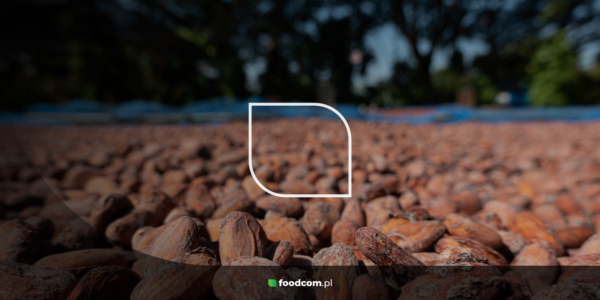● Organic cocoa is cocoa grown without the use of pesticides or artificial fertilizers.
● It is distinguished by its higher quality and pure flavor profile, and is also more appreciated by customers in the premium segment.
● For companies in the food industry, trading in organic cocoa offers great market potential.
Cocoa has for centuries been considered the ‘drink of the gods’ – not only for its unique taste, but also for its valuable nutritional properties. Nowadays, organic cocoa, which is produced in an ecological way, respecting nature and the principles of sustainable development, is gaining popularity. With increasing consumer awareness, it is becoming a key product on offer from food, cosmetic and pharmaceutical companies. In this article, we take a look at what organic cocoa is, its properties and why it is worth investing in wholesale cocoa.
What is organic cocoa?
Organic cocoa is the raw material from organic plantations where strict farming rules are followed. Unlike conventional cocoa, organic cocoa is not treated with chemical pesticides and is produced with respect for the environment, biodiversity and local communities. Growers use only natural fertilisation methods, such as compost and manure, taking care to preserve the balance of the ecosystem.
In practice, this means that each organic cocoa bean is all-natural, free of pesticide and chemical residues, yet extremely rich in flavours and nutrients. For a raw material to be considered organic, its production must be certified. Certification is most often granted by organisations such as: EU Organic, USDA Organic or Fairtrade.
What is the difference between organic and regular cocoa?
Why choose organic cocoa over regular cocoa? The higher value of the organic product is due to the fact that it features:
- better quality and taste – thanks to natural farming methods, organic cocoa retains an intense aroma and deep, chocolatey flavour without a chemical aftertaste.
- market value – products labelled ‘organic’ enjoy higher margins and greater consumer confidence.
- sustainability – organic cocoa production supports traditional plantations and local communities and reduces the negative environmental impact of cocoa production.
- safety and clean composition – the absence of pesticides and chemical fertilisers benefits both the consumer and the producer who cares about the quality of their products.
- health value – organic cocoa contains no hidden additives and has a higher amount of vitamins, minerals or antioxidants. This allows the maximum possible health benefits to be extracted from the beans.
From the perspective of food companies, investing in organic raw materials is the most ethical choice, betting on the highest quality, but also a strategic business decision.
The use of organic cocoa
In the kitchen and food industry, organic cocoa finds a wide range of applications – as an ingredient in chocolates, desserts, drinks, protein bars, ice cream or baked goods. It is also increasingly used in the functional products segment, such as plant-based drinks, breakfast mixes or natural supplements.
In addition to the food industry, organic cocoa is also valued by manufacturers of natural cosmetics, who use cocoa butter and cocoa powder as ingredients in skin care creams, lotions and masks. The substances contained in organic cocoa carry moisturising, regenerating, soothing and antioxidant effects, while also producing a natural aromatherapeutic effect.
Why invest in organic cocoa?
Cocoa and cocoa products do not only offer an extraordinary taste and aroma, but, above all, health values. Regular consumption of cocoa – especially organic cocoa, which is characterised by its wealth of natural health-beneficial substances – can contribute to:
- protecting heart health thanks to the presence of flavonoids,
- support of digestive processes,
- supporting brain function, in particular increasing concentration (thanks to the presence of caffeine or theobromine),
- reduce the risk of depression and improve mood (thanks to its tryptophan content),
- improve immunity and protect the body against oxidative stress (due to its high antioxidant content).
In addition, organic cocoa is an excellent supplement to the diet with healthy fats and protein, as well as essential minerals such as magnesium, iron, potassium and zinc.
Market and trade in organic cocoa
The market for organic cocoa has been growing exceptionally rapidly in recent years. Increased consumer awareness of healthy lifestyles, sustainable production and ethical trade is translating into a growing demand for organic products – both in the retail and wholesale sectors. On the market, organic cocoa is sold in various forms: as beans, cocoa powder, cocoa butter or cocoa pulp. Each of these forms has a wide range of applications.
For manufacturers of chocolate, confectionery, beverages and cosmetics, trading in organic cocoa represents an opportunity to strengthen market positioning and build a responsible brand image. When deciding to wholesale, it is worth considering not only the quality and reliable origin of the raw material, but also the stability of supply. A trusted partner with experience in international raw food trade is Foodcom S.A.


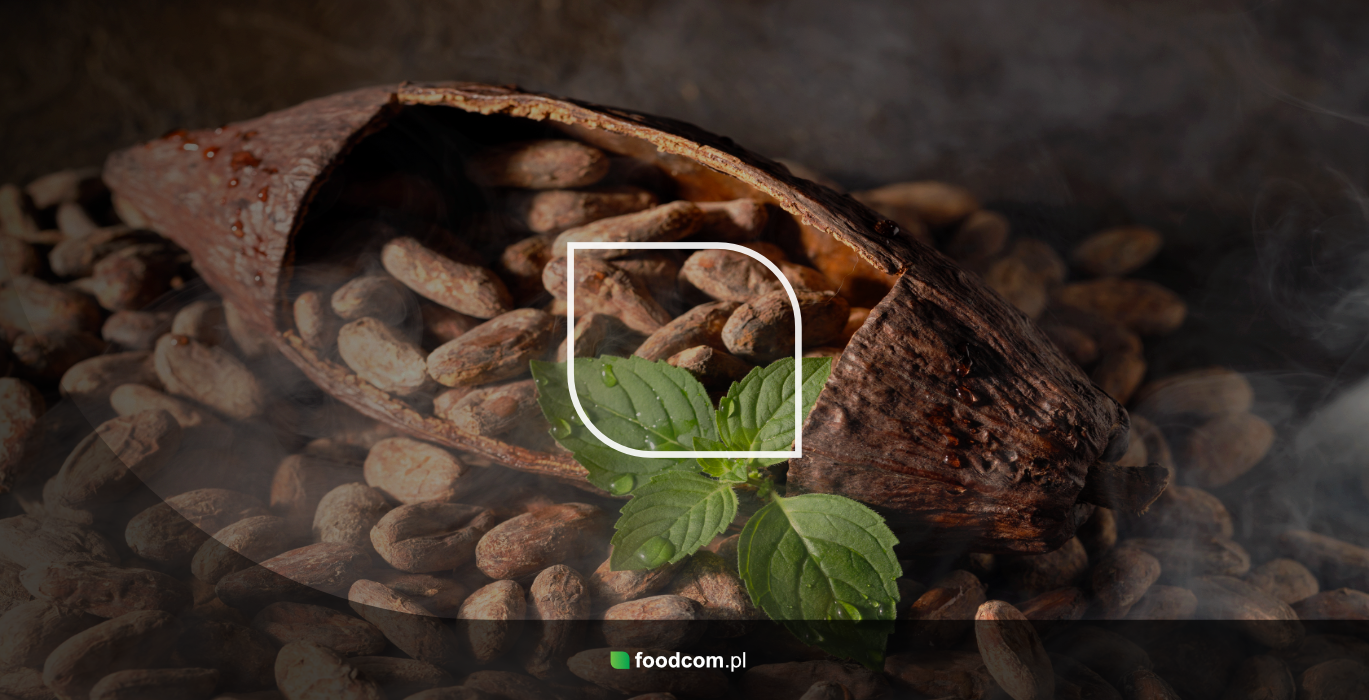
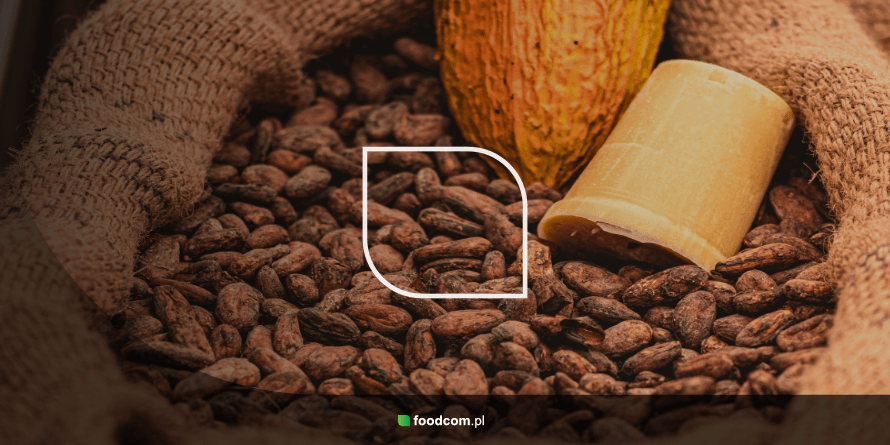
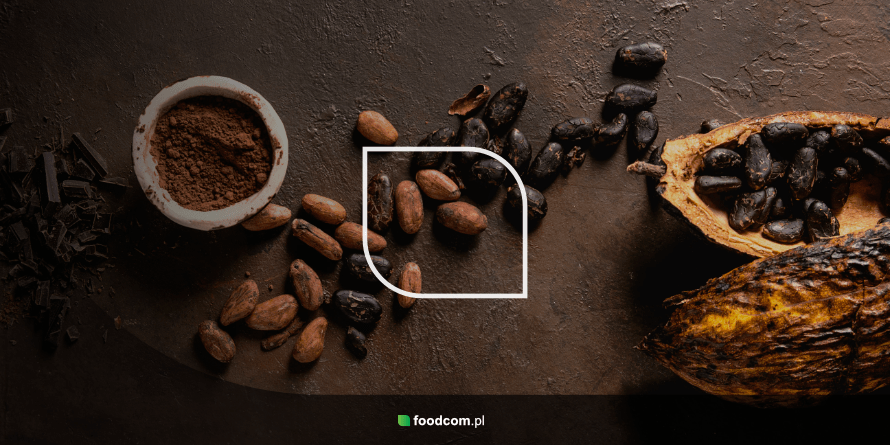
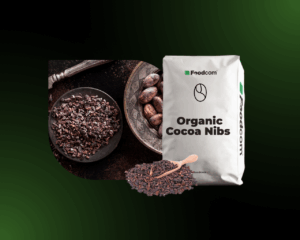

![Cocoa market overview 2026 [Global Report] Cocoa market overview 2026 [Global Report]](https://foodcom.pl/wp-content/uploads/2025/11/global-report-Cocoa-2025-min-600x300.png)

